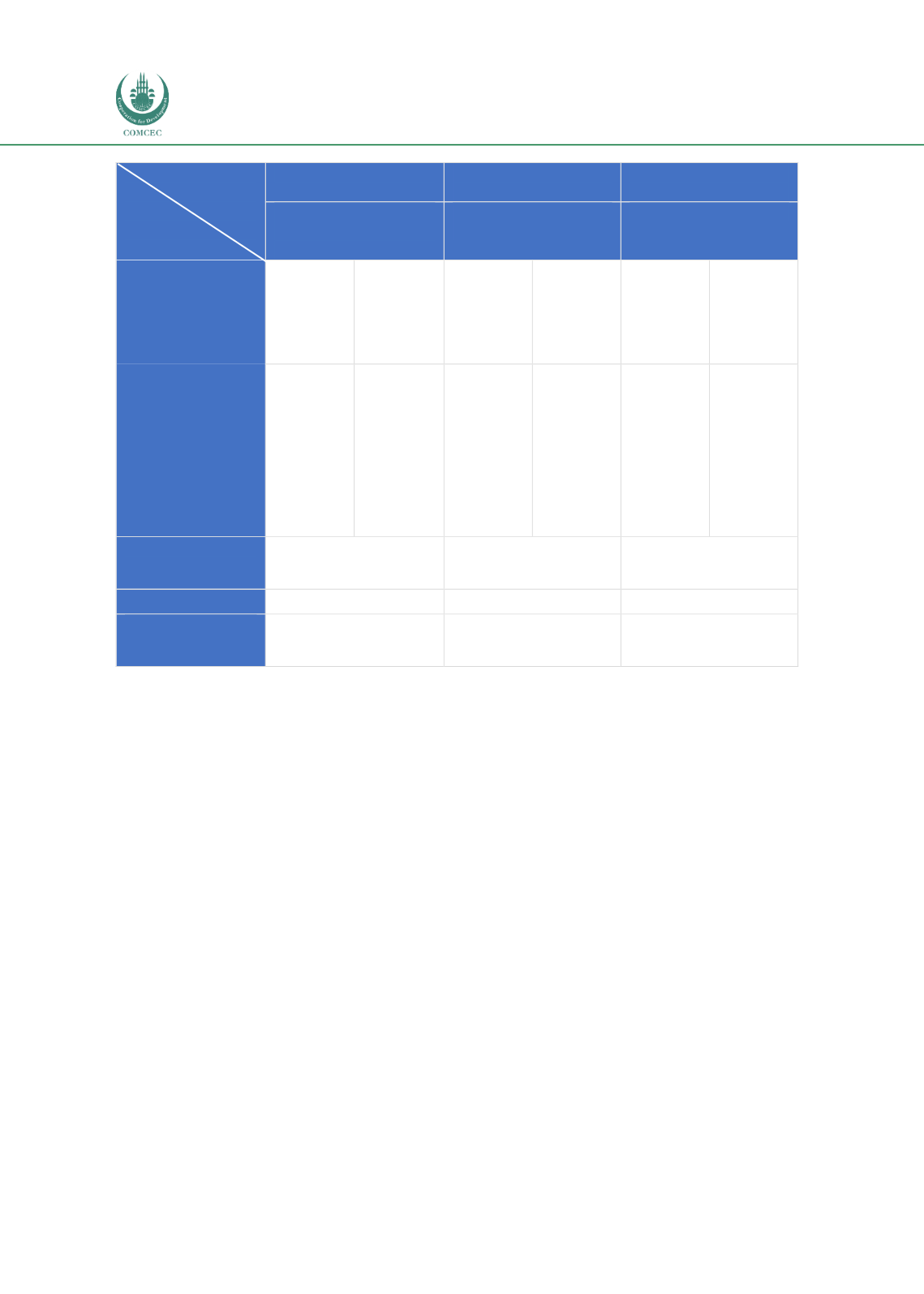

Islamic Fund Management
60
Type of Fund
Type of Fees
Islamic Equity Fund
Islamic Money
Market Fund
Islamic Commodity
Fund
National Investment
Trust (NIT) Islamic
Equity Fund
HLB Money Market
Fund
Meezan Gold Fund
p.a. of NAV,
on amount
exceeding
PKR1,000
million
%p.a. of
NAV, on
amount
exceeding
PKR1,000
million
%p.a. of
NAV, on
amount
exceeding
PKR1,000
million
Above
5000
PKR5.1
million
plus 0.07%
p.a. of
NAV, on
the
amount
exceeding
PKR5,000
million
Above
5000
PKR5.1
million
plus 0.07%
p.a. of
NAV, on
the
amount
exceeding
PKR5,000
million
Front-End Load
Currently 0%, but can
charge up to 3% of NAV
(for Class C only)
Currently 0%, but can
charge up to 5% of NAV
Currently 2%, but can
charge up to 5% of NAV
Back-End Load
-
-
-
Transfer of Units
Fee
0%
Up to 1% of NAV on the
date the request is
lodged
Up to 1% of NAV on the
date the request is
lodged
Sources: NIT Islamic Equity Fund Offering Document (2015, April), HBL Islamic Money Market Fund Offering
Document (2011, May), Meezan Gold Fund Offering Document (2015, April)
Note: The table above provides a comparison of basic transaction costs. Other applicable costs are detailed in the
respective offering documents.
3.2.3
Target Investors and Geographical Distribution
There are three main groups of investors: individuals, institutions and quasi-institutions. The
first group can be differentiated by wealth into mass affluent, high-net-worth, and ultra high-
net-worth individuals (refer to
Figure 3.12 ). Mass affluent individuals (with USD50,000-
USD500,000 of liquid wealth) usually invest in short-term, safe and simple products (e.g.
insurance- and annuity-linked ones). High-net-worth individuals (with at least USD1.0 million
of liquid wealth) and ultra high-net-worth individuals (with at least USD30.0 million of liquid
wealth) tend to focus on safe assets and capital preservation (IRTI-UNDP, 2017).
Institutional investors include
takaful
and pilgrimage funds, which solely invest in Shariah-
compliant instruments, sovereign wealth funds and pension funds. Sovereign wealth funds
may turn to Islamic finance if they seek ethical investments. According to IRTI-UNDP (2017),
these institutions are mostly interested in ‘sophisticated, structured products and exposure to
international markets’, as well as competitive returns and top-notch service. Pension funds,
which by nature seek long-term investments, focus on international investments in mature
markets.
















